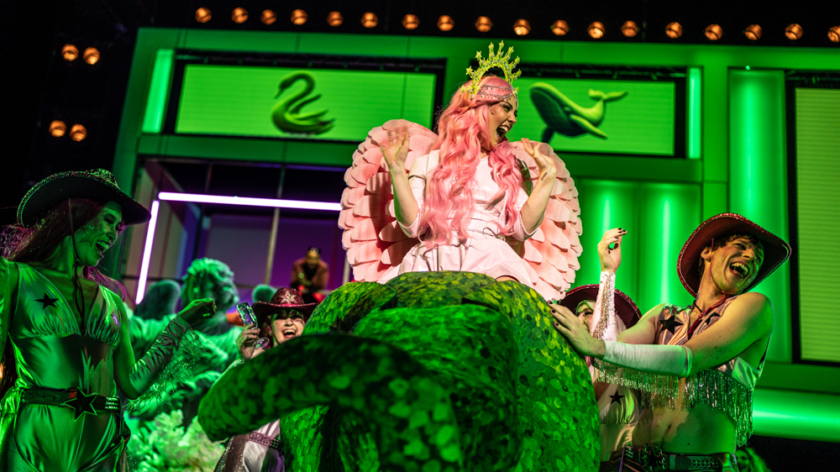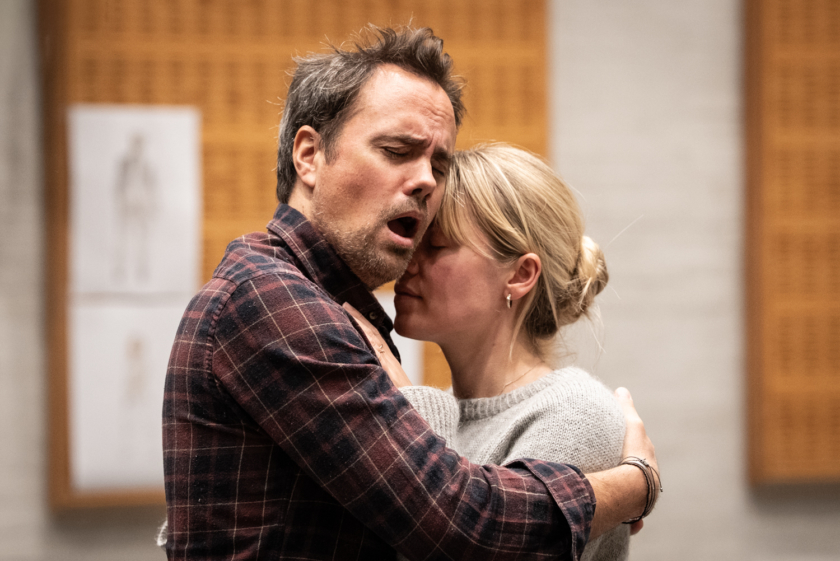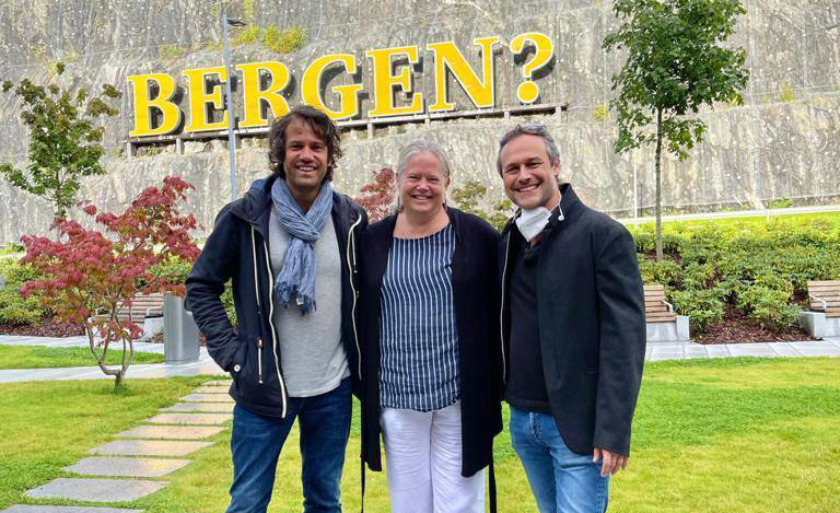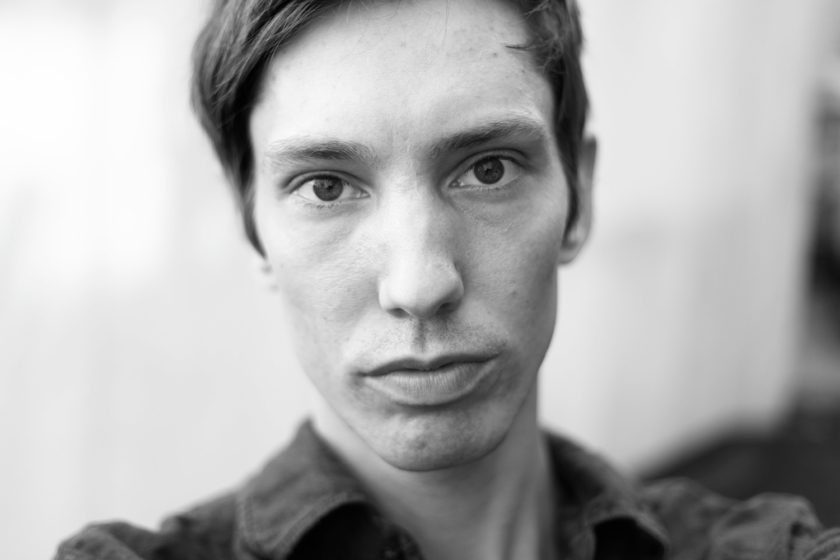What happens in The Dead City?
Get ready for an extraordinary love triangle! The amorous and confused Paul stands between two women who look completely identical: One is his deceased wife Marie, the other is the vivacious dancer Marietta.
The opera Die tote Stadt (The Dead City) by the young Erich Wolfgang Korngold was warmly embraced by the audience at the world premiere in December 1920, after dark years for Europe. And what should the widower Paul choose? To be faithful to the memory of his dead and dear wife, or say yes to life itself and lovemaking with Marietta?
Sigmund Freud's theories on psychoanalysis and the interpretation of dreams were also a hot topic at the time, and the opera went straight into such themes: On stage, you could see the main character Paul in confusion between fantasy and real drama – and it was almost like a crime mystery to find out what were only dreams or the truth. The story also has its likeness with Hitchcock movies like Vertigo and Rebecca.
Here is a summary of what happens in the original plot of The Dead City. But it is still open how the stage director Calixto Bieito will interpret this opera. And a heads up: If you wish to wait to know the ending until you come to Grieghallen in November, you should stop reading the text before Act 3!
ACT 1
Paul is still in deep grief, several years after his great love Marie died. In a room in the house, he has created something he calls "The Temple of the Past", filled with memories of Marie.
The opera starts with his friend Frank making a surprise visit. Brigitta, Paul's housekeeper, welcomes Frank and shows him this special memory room, which makes Frank worried. Then Paul comes in and excitedly reveals what has just happened: He has met a woman on the street who looks exactly like his deceased wife. Now he has invited this twin stranger to his home, and can hardly wait.
Soon the woman arrives, who introduces herself as Marietta. She says that she is a dancer from Lille who occasionally performs here in the gloomy city of Bruges. She sings and flirts with Paul, and he is spellbound. But when her friends in the cheerful acting company call for her, she disappears again. Paul is startled and confused, and does not know what he has just seen: Is it really his deceased wife who has come back to life? And is it Marie who comes and whispers about faithful love when he is alone in the house?
The most famous song from act 1 is the beautiful "Glück, das mir verblieb" (Joy that stayed with me) – also called Marietta's Lied, here in a duet with soprano Julia Kleiter as Marietta and tenor Jonas Kaufmann as Paul:
ACT 2
Paul is obsessed with Marietta. His housekeeper Brigitta has left him in protest, because she cannot bear to witness Paul living in sin, as she calls it. His friend Frank also breaks away from Paul, because it turns out that both are competing to be Marietta's lover.
Now we see an opera within the opera: Marietta and the others in the acting company have fun staging a scene from Meyerbeer's 19th-century opera Robert le diable (Robert the Devil) with the famous Ballet of the Nuns: A group of nuns wakes up from the dead and dances seductively in front of Robert. Marietta happily interprets the soloist role as Abbess Helena rising from her tomb.
Paul witnesses it all, and is horrified by the frivolous Marietta, but is still fascinated by her – and they walk together to his house in the darkness.
The dreamy "Mein Sehnen, mein Wähnen" (My longings, my fancies), which is also called Pierrot's Tanzlied, is the most famous song from act 2, and is performed by the actor Fritz as the clown Pierrot. Here is a nostalgic recording with the German baritone Hermann Prey from 1957 – the same year that Korngold died:
ACT 3
Paul and Marietta are still in his house, and it is the day of the year's biggest religious festival in Bruges: The centrepiece of the colourful and historic Procession of the Holy Blood (which is still taking place every year in May) is the shrine where the precious drops are stored. The singing procession approaches Paul's house, but he insists that Marietta must hide so that she is not seen by the crowd.
Marietta discovers a lock of hair that belonged to Marie, and which Paul has kept as a kind of relic. She makes fun of the lifeless hair, and demands that Paul say that he only should love her - the living Marietta. It ends with Paul strangling Marietta with the hair.
Soon the housekeeper Brigitta returns and reports that a woman has arrived. It is Marietta who comes to collect the roses and the umbrella she had just left behind. Paul slowly understands that Marietta's murder must only have been a dream.
A LITTLE PS:
The story in the opera The Dead City is based on the novel Bruges-la-Morte (1892) by the Belgian symbolist Georges Rodenbach. But father and son Korngold made their own twist when they wrote the libretto under the pseudonym Paul Schott: In Rodenbach's novel, the main character actually murders the woman in the last chapter – while Korngold lets it all be a dream from which Paul awakens.
Text and video selection by Møyfrid Engeset, Bergen National Opera (2024)
Translated from Norwegian








